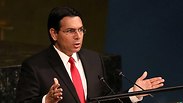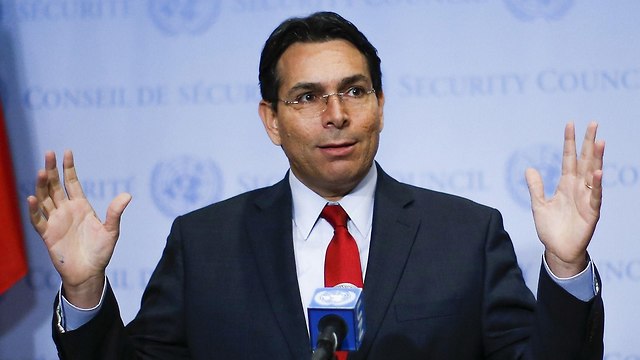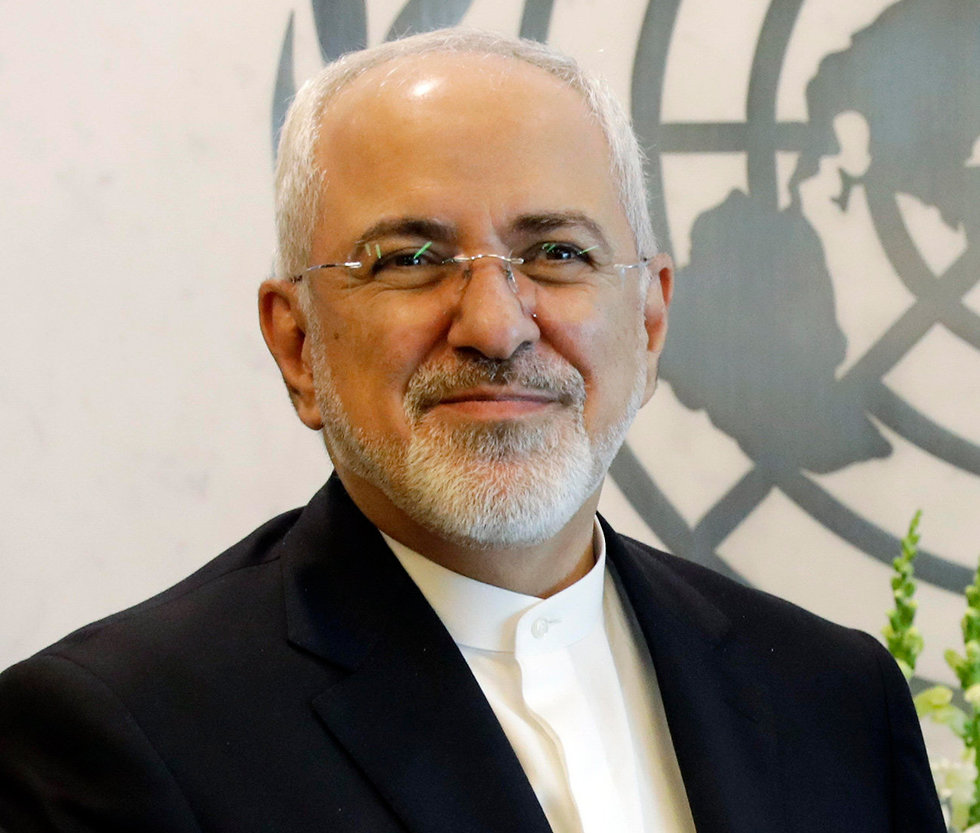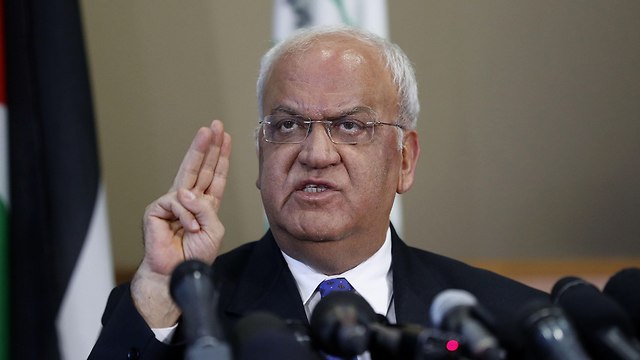
Israel predicts win for UN resolution condemning Hamas
Ambassador Danny Danon believes US draft resolution condemning the terror organization for launching rockets into Israel will be approved by the General Assembly 'no matter what,' despite the PA representatives' suggestion they will support Hamas and Iranian efforts to sabotage the vote.
Danon told reporters he believes "we will get a majority" of the votes, with at least 50 countries currently expected to vote in favor of the US draft resolution.
The 193-member General Assembly is scheduled to vote on the draft Thursday afternoon.
The draft resolution "demands that Hamas and other militant actors, including Palestinian Islamic Jihad, cease activity, including by using airborne incendiary devices."
In addition, the resolution seeks to condemn the Palestinian factions in Gaza for using civilian infrastructure for military purposes and for violating human rights. It also calls on Hamas to stop violent attacks against humanitarian aid workers and medical staff.
The draft further urges the terror group to go back to the negotiating table to restart the intra-Palestinian reconciliation process—which might have contributed to the decision of the Arab states to vote in favor of the draft.
It was amended to gain support of the 28-member European Union—as well as some countries from Eastern Europe, the Pacific islands and African states—adding a reference to "relevant UN resolutions," though not specific ones.
Arab states are also expected to back the US draft despite efforts by Hamas leader Ismail Haniyeh to torpedo the move by appealing to Iranian Foreign Minister Mohammad Javad Zarif, who promised to enlist the help of the Arab UN member states to stop the resolution.
The Palestinian Authority (PA) is also expected to join forces with the terror group and vote against the resolution.
"Hamas is a Palestinian political party and can not be defined as a terrorist organization," said the Secretary General of the Palestinian Liberation Organization (PLO), Saeb Erekat.
US envoy to the Middle East Jason Greenblatt condemned the PA for its decision to back Hamas, calling it “beyond absurd.”
"The Palestinian Authority, which hates Hamas, has cut payments to Gaza for months, increasing the suffering of Palestinians in Gaza, now tries to defend Hamas and terrorism by undermining a condemnation of Hamas at the UN. It’s time to speak the truth," stressed Greenblatt on his Twitter account.
Nevertheless, Kuwait's UN Ambassador Mansour Al-Otaibi said Arab nations will seek to have the resolution approved by a two-thirds majority rather than a simple majority.
However, the Hamas vote is “just a fig leaf” in the context of an overwhelming amount of anti-Israel resolutions, Professor Eytan Gilboa, a senior research associate at the Begin-Sadat Center for Strategic Studies, told the Media Line.
Arab states, he explained, “would only vote for it because they also hate Hamas," but "even if this resolution passes, it doesn’t mean much because General Assembly resolutions (as opposed to Security Council resolutions) are just recommendations. Yet the disparity between anti-Israeli resolutions and those benefiting Israel’s security, clearly show an imbalance when it comes to the Middle East peace process.”
“It’s important to pass this resolution in view of the last eight months of violent Hamas-sponsored protests along the Israel-Gaza border,” he continued, “but it’s just a drop in the bucket in terms of adopting reasonable resolutions that are not one-sided.”
Beyond such disparities on Israel, some experts have pointed to problems in how the voting at the UN is structured.
“The United Nations, at least in the General Assembly, has a structure based on full equality between nations,” Einat Wilf, a former member of Knesset, explained to The Media Line.
“Therefore, dictatorships have the same rights in the assembly as advanced liberal democracies, and since the UN enjoys an image of general respectability, few are aware of the wide gulf between what the UN stands for and what it actually does,” she concluded.
Victor Cabrera from The Media Line contributed to this report.




















